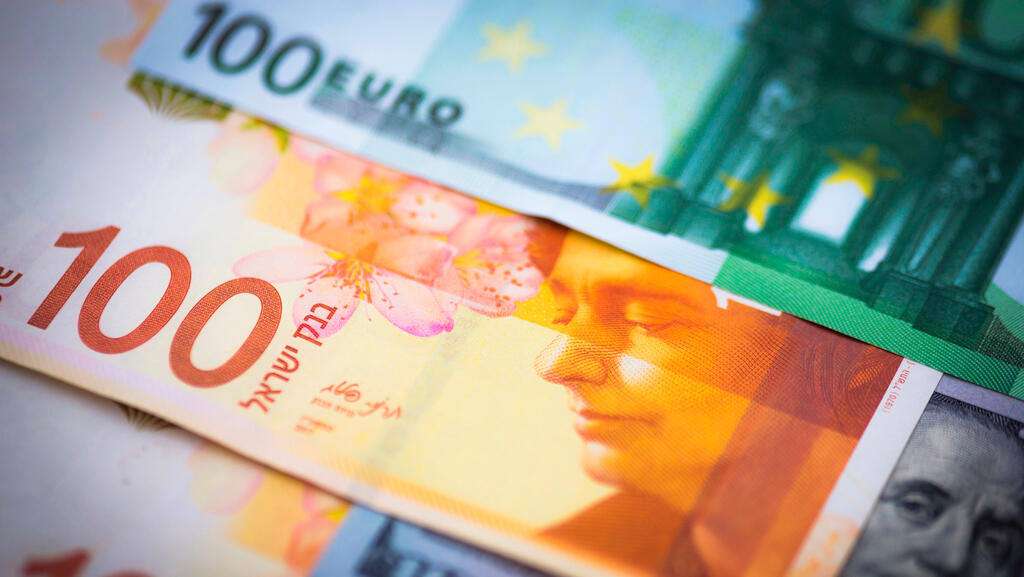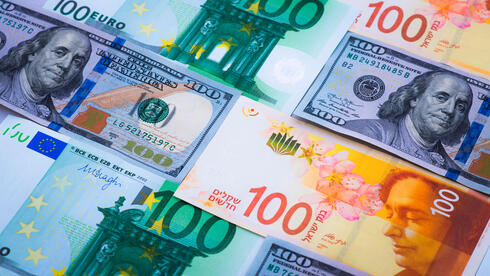
The shekel continues to lose ground as fears of judicial coup in Israel continue to grow
The dollar continues to climb against the shekel, reaching its highest mark since 2019, while the euro has also risen. The rapid devaluation of the shekel is set to lead to inflationary pressure and the Bank of Israel will be forced to respond by raising interest rates even further
The shekel continues to lose ground, dropping on Wednesday to its lowest rate against the dollar in four years. Following Tuesday's free fall by 2%, the dollar continued to climb against the shekel on Wednesday, hitting NIS 3.69 at one stage for the first time since early 2019. The euro has also been climbing, reaching NIS 3.92.
The shekel lost about 2% on Tuesday despite the Bank of Israel raising interest rates by 0.5%, from 3.75% to 4.25%, on Monday. The rapid devaluation of the shekel is set to trigger additional inflationary pressure and force Bank of Israel Governor Amir Yaron to continue his hawkish policy - that is, further interest rate increases.
Citigroup revealed on Tuesday that it is betting against the shekel, targeting an 8% drop to 3.95 per dollar. “Despite Bank of Israel’s mildly surprising 50-basis-point hike yesterday, the currency continues to remain under pressure from local political noise,” Citigroup strategists Luis Costa and Bhumika Gupta said in a report. “The political situation seems likely to get more volatile in the coming weeks as judicial reforms head for a second reading in the parliament.”
The outflow of funds from the country is also contributing to the decline of the shekel as it involves an increasing sale of the local currency. Calcalist found that over $1.5 billion has been withdrawn by high-tech companies and venture capital firms over recent weeks, with private clients - most of them wealthy high-tech individuals, but not only - withdrawing an aggregate sum of several billion shekels in addition.
Related articles:
Calcalist also revealed that against the background of the fear of the potential economic effects of the judicial coup, institutional bodies increased their exposure abroad by NIS 14 billion ($3.8 billion) in the month of January. Pension funds increased their exposure abroad by an average rate of 1.67% and in the provident funds there was an increase of 0.93%. This is in contrast to the trend in 2022 when the institutions worked to reduce exposure abroad and increase it to the local market.
Provident and pension funds make up the majority of the pension savings industry in Israel, managing about $1.3 trillion in total. Due to the huge volume of funds in the field, any movement of funds outside of Israel or into Israel is usually in the billions of shekels.
